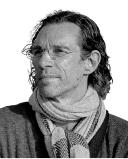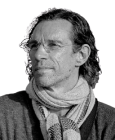Personality Change
What Makes You Feel "You"
Are you accepted and allowed to become who you really are deep inside?
Posted September 27, 2023 Reviewed by Hara Estroff Marano
Key points
- Our self is nurtured in the living relation between the mother's body and her world.
- Our emotions as embodied values evolve from the primordial feelings of the self.
- Our psychology depends on the wisdom of many others.
The Emerging You
Where does "you" come from? When does "you" begin? We human beings are like the germinating seed of a tree. When the seed pod bursts open, water can flow in and the seedling can begin to grow into a tree. The emerging "you" also grows as a germinating self.
The fragile body that embraces the self is created during a complex exchange between the body of a mother and the world. Our self is connected to another self from the very beginning. Is this what fundamentally distinguishes us from the seedling of the tree? No, even the seed of some trees begin in the fruit of other trees.

The psychology of the self is a process that begins very early. When, exactly, is difficult to say, just as it is difficult to say when a tree begins, it is open to interpretation.
The self is a process that grows slowly as the body becomes more complex and a nervous system develops. The self is nurtured in the living relation between the mother's body and her world.
The Psychology of You
What makes you feel you? When does the psychology of the self emerge? Human beings are always in a world that gives them meaning and cohesion—Dasein, said the German philosopher Heidegger in his magnus opus,: Being and Time. (Sein und Zeit, 1927) And that value and unity of the world originates in the warmth of a woman's belly. Deep inside the living body the story of our self begins, and the self arises in the quality of that embodiment.
The self is a subjective experience, and thus a specific content of consciousness. That content consists of having a particular body, which provides a unique sensory perspective. (Seth, 2021, Damasio, 2021) The senses grow in the watery environment of the womb; our primordial perspective arises here.
The self is the subjective stability that grows out of the permanent background of our consciousness as primordial feelings. From this core experience our first-person perspective emerges. From the growing body and its senses grow our first emotions and moods.
Once out of the birth canal, the senses receive an overwhelming stream of information that must be given meaning and coherence. This is the task of the self and its "I"as a slowly emerging process. How this living grounding of the self becomes the breeding ground for the later quality of life cannot be overemphasized. All our emotions as embodied values evolve from here. Culture ceaselessly adds meaning to this natural humanness.
The Embodied Value of You
The experience of subjectivity is probably the aspect of consciousness that human beings value the most. The sense of self is the source of all our experiences. The quality of our self-feelings leaves no one untouched. The sense of our self colors, creates, and guides all our subsequent choices. Self-feeling becomes the heart of our free will, the ground from which we choose and act.
And yet we have relatively little choice in how our self grows into the "I." The self-process is particularly dependent upon many others. The place in the world where we are born is fundamental: in an emotionally warm and balanced environment offering many possibilitie or in a very vulnerable one with limited choices, a vulnerable place due to economic, environmental, political, or ideological causes. There are many forms of existence available to start: Even if we have no choice, they make us who we become; from here we must begin to make our choices.
What makes you feel you? The environment creates the opportunities to grow. Genetic conditions from life’s relational history help create those opportunities for growth. Whether you are born mentally disabled or not there is sometimes no free choice to start with, and yet a "you" has to make choices.
Is the You You Feel Broken by a Thousand Voices?
Our psychology is extremely dependent on the qualitative choices of previous human beings. What makes you you is a very interdependent and vulnerable process. Being born in a country ruled by narcissistic or psychopathic leaders can make a fundamental difference in the possibilities of becoming you. Growing up in an environment where old dogmas rule can determine all your future choices. The quality of the environment in which your subjective subjectivity unfolds matters for your future well-being and health. This gives human beings a tremendous responsibility.
A human being's psychology begins in the warm waters of a female belly. The embodied value-experience of being ourselves is our deepest essence; it is the source of who we become. How effortlessly we find meaning and coherence depends on many others: the open mind state of our parents, caregivers, teachers, partners, politicians, leaders, and more.
Our choices to become who we are are interdependent. What makes you a "you" is a relational process with many biological and cultural ingredients. There is no single ingredient. Becoming a you is always a complex challenge. Our psychology depends on the wisdom of others: The feeling "you" depends on many variables. How wise is our cultural environment in supporting our psychological growth?
Is the growing you broken by a thousand cultural voices about what is allowed and what is not? Or are you simply accepted and allowed to become who you really are deep inside? Can you accept and allow others to be themselves?
References
Damasio, A. (2010). Self Comes to Mind. Constructing the conscious brain. London, William Heinemann.
Seth, A. (2021). Being You. A New Science of Consciousness. London, Faber & Faber Ltd.




